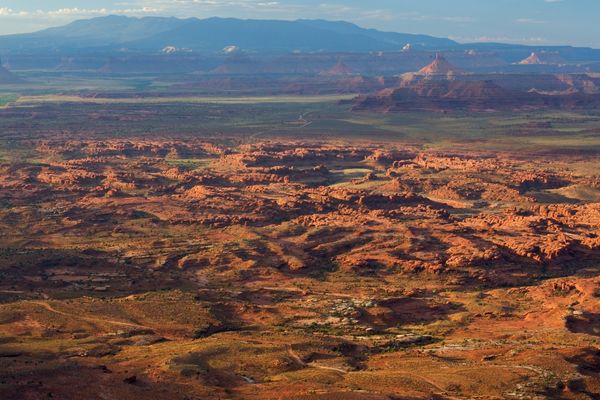
- Details
- By Kaili Berg
On his first day in office, President Donald Trump issued executive orders prioritizing the expansion of fossil fuel and mining development on public lands.
Continuing that approach, newly sworn-in Secretary of the Interior Doug Burgum has signed Secretarial Order 3418, dated Feb. 3, requiring a 15-day review of lands previously withdrawn from resource extraction, including national monuments with cultural and historical importance to Native American tribes.
This directive follows Trump’s 2017 reductions of Bears Ears and Grand Staircase-Escalante National Monuments in Utah by 85% and 47%, which marked the largest rollback of federal land protections in U.S. history.
Unlike that earlier review, which involved public comment, Secretarial Order 3418 does not allow for public input. It also does not directly mention the Antiquities Act, referring to it only by its U.S. code number, despite its role in the designation of many protected sites with tribal significance.
Many of the lands under review are historically and spiritually significant to Native American tribes. Bears Ears National Monument, for example, is sacred to the Navajo Nation, Hopi Tribe, Ute Indian Tribe, Ute Mountain Ute Tribe, and Zuni Pueblo.
The area contains thousands of archaeological sites, including rock art, ancient dwellings, and ceremonial locations. Reducing or eliminating monument protections could lead to increased industrial activity, which may disturb these culturally important sites.
“National monuments can help protect our culture and sacred lands,” Joseph Brophy Toledo, Member of Jemez Pueblo & Tribal Spiritual Advisor, EarthKeepers 360 said in a press release. “ It's important we continue to preserve wildlife habitat protected by our national monuments and be strong in speaking up for the four-legged, finned, winged and micro-invertebrates.”
The review could also have significant economic and environmental consequences. National monuments and other protected public lands play a crucial role in the outdoor recreation economy, which generates an estimated $640 billion annually and supports millions of jobs.
Many rural communities, particularly in the West, rely on these protected lands for tourism, guiding services, and outdoor industries. If protections are removed, these lands could be opened to oil drilling, mining, and other industrial activities that may disrupt local economies and natural ecosystems.
The authority of the president to designate national monuments has been upheld by the Supreme Court, and both Republican and Democratic administrations have used the Antiquities Act to protect sites of historical and cultural importance.
In the past, legal challenges to monument reductions have been brought forward by tribal governments, conservation organizations, and state officials. Similar legal actions may arise in response to this order.
Tribal governments and Indigenous organizations have consistently advocated for greater involvement in federal land management decisions. The outcome of this review could set precedent for future decisions regarding the status of protected lands with tribal significance.
As the review process moves forward, tribal nations, conservation groups, and legal experts are monitoring developments closely.
More Stories Like This
Native News Weekly (August 25, 2024): D.C. BriefsUS Presidents in Their Own Words Concerning American Indians
I’m a Minneapolis Postal Worker. This Is What I Saw.
Next on Native Bidaské: Inside Dark Winds with the Cast of Season 4
'Sovereignty Predates the United States,' NCAI President Mark Macarro Tells Tribal Nations
Help us defend tribal sovereignty.
At Native News Online, our mission is rooted in telling the stories that strengthen sovereignty and uplift Indigenous voices — not just at year’s end, but every single day.
Because of your generosity last year, we were able to keep our reporters on the ground in tribal communities, at national gatherings and in the halls of Congress — covering the issues that matter most to Indian Country: sovereignty, culture, education, health and economic opportunity.
That support sustained us through a tough year in 2025. Now, as we look to the year ahead, we need your help right now to ensure warrior journalism remains strong — reporting that defends tribal sovereignty, amplifies Native truth, and holds power accountable.
 The stakes couldn't be higher. Your support keeps Native voices heard, Native stories told and Native sovereignty defended.
The stakes couldn't be higher. Your support keeps Native voices heard, Native stories told and Native sovereignty defended.
Stand with Warrior Journalism today.
Levi Rickert (Potawatomi), Editor & Publisher


